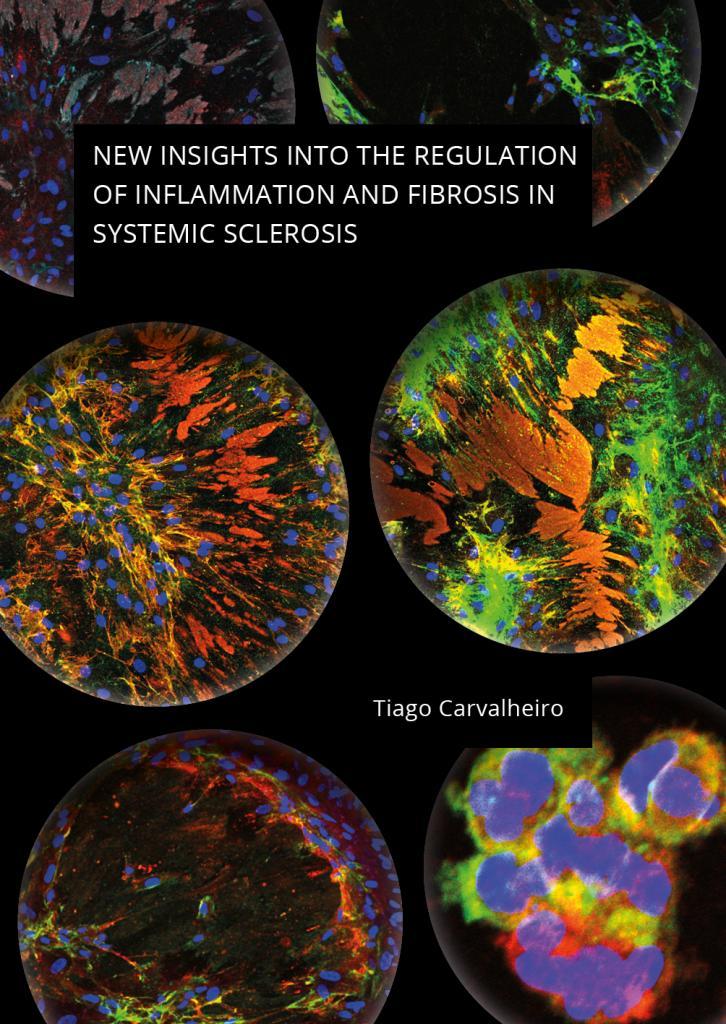Several proteins of interest have been identified and characterized that are thought to play a role in the immune and fibrotic processes that occur in patients with systemic sclerosis. These proteins are potential new therapeutic targets that may offer new opportunities for the treatment of patients with SSc, says Tiago Carvalheiro who defended his PhD thesis in Utrecht on February 22.
Systemic sclerosis (SSc), also called scleroderma (sclero=hard, dermis=skin), is a rare immune-mediated fibrotic disease, characterized by hard, thickened skin areas, and often also affecting internal organs and blood vessels. In patients with SSc, a continuous inflammatory response in the connective tissue causes excessive scarring, resulting in tissue damage and eventual organ failure. The origin of SSc is largely unknown and the course of disease is unpredictable and different in each patient. In the Netherlands, there are approximately 3.000 people with SSc, with 100 new diagnoses each year. The aim of the PhD research by Tiago Carvalheiro (Center for Translational Immunology, UMC Utrecht) was to identify new proteins that play a role in SSc.
In his research, several proteins of interest have been identified and characterized in both cells of the immune system and in cells responsible for the production of scar tissue. These proteins are potential new therapeutic targets that may offer new opportunities for the treatment of patients with SSc. Lastly, the underlying mechanisms of SSc are heterogeneous and can differ from patient to patient, which underlines the need to further explore these mechanisms and indicating that the therapeutic approach should be tailored to the specific characteristics of each patient.
Tiago Carvalheiro concludes: “The work in my thesis reveals several crucial processes that are dysregulated in scleroderma and contribute to inflammation and fibrosis. Because processes are rather similar in different fibrotic diseases, it is likely that this can be translated to other fibrotic conditions as well. Our findings show that there are several mechanisms that may be disrupted in scleroderma and highlight the need for better biological characterization of patients to allow for individualized treatment. Despite the limitations of mouse models and in vitro studies, our research has led to the identification of a number of potential targets for future therapies for the treatment of scleroderma.”
Tiago Carvalheiro (1986, Pombal, Portugal) defended his PhD thesis on February 22, 2022 at Utrecht University. The title of his thesis is “New insights into the regulation of inflammation and fibrosis in systemic sclerosis”. Supervisors were prof. dr. Tim Radstake (Department of Rheumatology & Clinical Immunology, UMC Utrecht) and prof. dr. Linde Meyaard (Center for Translational Immunology, UMC Utrecht). Co-supervisors were dr. Wioleta Marut and Dr. Samuel García Perez (both Center for Translational Immunology, UMC Utrecht). In January 2022, Tiago Carvalheiro started as a postdoctoral researcher at the Princess Máxima Center for Pediatric Oncology, investigating the role of the immune microenvironment in pediatric brain tumors.

